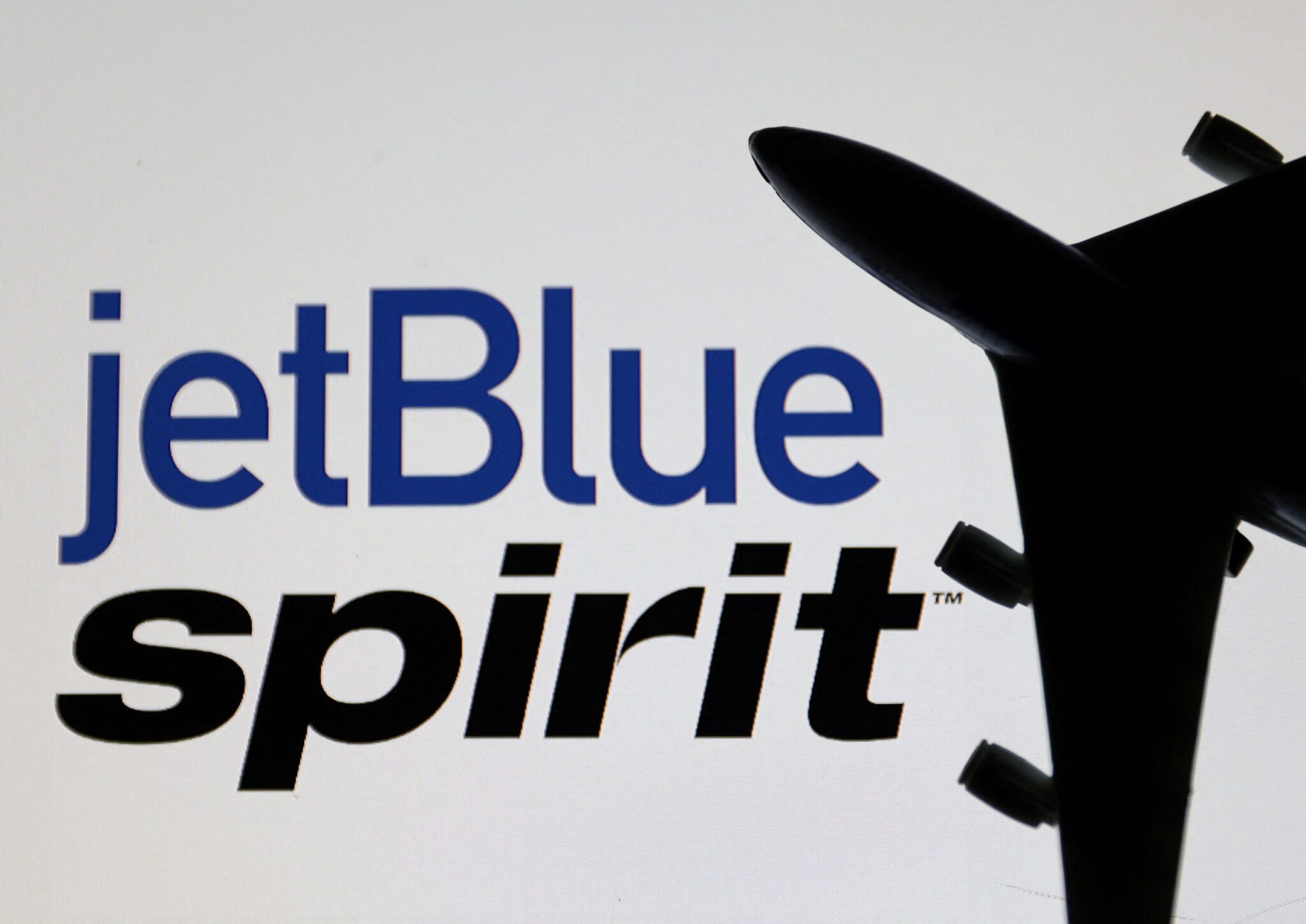Skift Take
Affordable air travel for U.S. consumers and control of the domestic market remains central to the JetBlue-Spirit merger court case.
The U.S. Department of Justice heads to trial on Tuesday to urge a federal judge to block JetBlue Airways‘ planned $3.8 billion acquisition of ultra-low-cost carrier Spirit Airlines.
The case in federal court in Boston is part of a broad effort by President Joe Biden’s administration to preserve competition among the lowest cost airlines, ensuring air travel remains affordable for many more US consumers.
The trial will take place without a jury over about three weeks before U.S. District Judge William Young. At a hearing in March, Young said he felt an “obligation” to try to rule by year’s end.
A merger between JetBlue and Spirit, the sixth and seventh largest U.S. carriers, respectively, would mark the first major U.S. airline combination since Alaska Airlines bought Virgin America in 2016.
The sector is dominated by four U.S. carriers – United Airlines, American Airlines, Delta Air Lines and Southwest – who control 80% of the domestic market following a series of previous airline mergers, the Justice Department has said.
JetBlue has called the deal pro-consumer and has sought to ease U.S. regulators’ antitrust concerns by agreeing to sell off Spirit’s gates and slots at certain airports in New York City, Boston, Newark and Fort Lauderdale.
But the Justice Department has said those divestitures are not enough, and in a lawsuit filed in March argued the combined airline would harm consumers by increasing fares and reducing choice on routes nationwide.
The department is suing alongside Democratic attorneys general from six states and the District of Columbia. They call Spirit a “disruptive and innovative airline” whose low-cost, no-frills model has forced price cuts industry-wide.
The Justice Department alleges the merger would eliminate the pressure larger airlines, including JetBlue, face to lower their fares in response to competition from Spirit and cost consumers over $2 billion in higher fares annually.
“The transaction promises to replace Spirit with a higher-cost airline that offers fewer seats, charges higher fares, and is less likely to upset other airlines’ higher prices,” the department said in a court filing ahead of trial.
The airlines counter that allowing the deal to go forward would strengthen JetBlue’s own long-standing reputation as a market disruptor.
While JetBlue would become the nation’s fifth-largest airline, its lawyers say it would still only have less than 10% market share domestically.
JetBlue in a statement said “our combination with Spirit is the best opportunity to disrupt the industry by increasing competition and choice, creating a long overdue national low-fare challenger to the dominant Big Four airlines.”
The department’s case is part of a broader push by the Biden administration to aggressively step up antitrust enforcement, an initiative that has had mixed results in court.
JetBlue was already the focus of one of its earlier cases, with a different Boston judge, Leo Sorokin, in May siding with the government in finding that JetBlue’s U.S. Northeast partnership with American Airlines violated antitrust law.
JetBlue subsequently decided to terminate the alliance. American Airlines is appealing Sorokin’s decision.
Reporting by Nate Raymond in Boston, Editing by Alexia Garamfalvi and Nick Zieminski. Copyright (2023) Thomson Reuters. Click for restrictions
This article was written by Nate Raymond from Reuters and was legally licensed through the DiveMarketplace by Industry Dive. Please direct all licensing questions to [email protected].

The Daily Newsletter
Our daily coverage of the global travel industry. Written by editors and analysts from across Skift’s brands.
Have a confidential tip for Skift? Get in touch
Tags: jetblue, mergers, spirit airlines, spirit takeover
Photo credit: An illustration shows Spirit Airlines and jetBlue Airways logos scaled. Reuters

